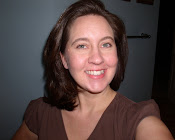- Are you a frequent reader?
- Have you written anything else?
- Are you an avid and daily learner?
- Do you have a writing support network?
- Have you published anything?
Part two addressed "Have you written anything else?" Today we'll address:
Are you an avid and daily learner?
A writer should learn something new about writing every day. It could be as simple as picking up a new vocabulary word to something as involved as reading a twenty-page chapter on the period. Yes, writers will read twenty pages on the period because . . . well, we're an odd bunch. And we know, chances are, if we read twenty pages on the period, we're going to discover some things about it we never knew.
Is your mouth watering over this whole twenty-pages-on-the-period thing? Then you are a writer, my friend. And this little treat is for you: A Dash of Style: The Art and Mastery of Punctuation by Noah Lukeman. If, on the other hand, the thought of reading a single word about the period makes you want to take a melodramatic dive over Niagara Falls, what the heck are you doing reading this post? This is a writing blog, and writers love periods because they mean completion, finality, the end - even if it is just the end of our very first sentence in a four hundred page novel.
Learning something new in something as basic as punctuation usually excites a writer because a new technique in punctuation means yet another way we can express ourselves in our writing.
The next logical step following punctuation would be grammar and style - all of those things that would be considered the mechanics of writing. What do you know about:
- changing passive voice to active
- minimizing verbosity
- avoiding clichés
- subject-verb agreements
- syntax
- point of view
- smoothing transitions
- showing versus telling
- writing great dialogue
- hooking and holding readers
- creating tension and conflict
- pacing
- plotting
- characterization
If you aren't addicted to learning the craft of writing, I doubt you will find success as a novelist. The writing world, even things that seem as basic as grammar, is constantly changing. You have to change with it.
But let's dig a little deeper.
Learning to be a great writer is about more than just cracking the grammar and style books. You also have to have a curiosity about the human condition. So much so that you spend great deals of time observing people, psychoanalyzing them in secret and from a distance.
In secret is the key term.
People already think you're weird. Sorry, but they do - the moment you announced that you are a writer, you were branded "weird" by that banal non-writer bunch. If they catch you psychoanalyzing them, their perceptions of your mental status will be bumped to psychotic, and it's best to stay in the "weird" zone so they'll continue to invite you to their gatherings where you can psychoanalyze more of their type. After all, it's those people that inspire us weird writers to create vibrant characters.
And lastly, don't forget to feed your imagination. Part one dealt with reading. Read great works that take you to amazing places and introduce you to fantastic people. Watch imaginative movies with thought-provoking story lines. Listen to music - I've written entire stories around a single line or even a single word I heard in a song. Viewing artwork can be extremely powerful and can encourage the writer to disappear into another world.
Come to LWC creative writing sessions and do writing prompts that are outside of your normal writing style - writing outside of your normal style can spark your imagination, and help pull you out of a rut in your routine or a block in your story. Enhancing your imagination is a valuable learning gem.
What's the most important writing concept to learn? Now that I've decided to become an avid and daily learner, where should I start?
It's all important, and you start with it all. A scoop of grammar here, a pinch of punctuation there. Pepper it with some style, and the thread that runs through it all: observations of the human condition. Finally, bring it all to life with an imagination that makes it all soar.
This is how you make writing magic happen, but you can't succeed at what you don't know. So get busy learning - there's a beautifully written novel patiently waiting to burst through you.
Join me in a couple of days for part four of this five-part series. In part four, I will explore the fourth question on the bullet list above: Do you have a writing support network?
By the way, if you happen to be an exception - a successful author (meaning you've quit your day job) who never learns anything new, my readers and I would love to hear from you.
Post by: LWC Director, Karen Aldridge. Visit her personal blog at My Writing Loft.

















No comments:
Post a Comment